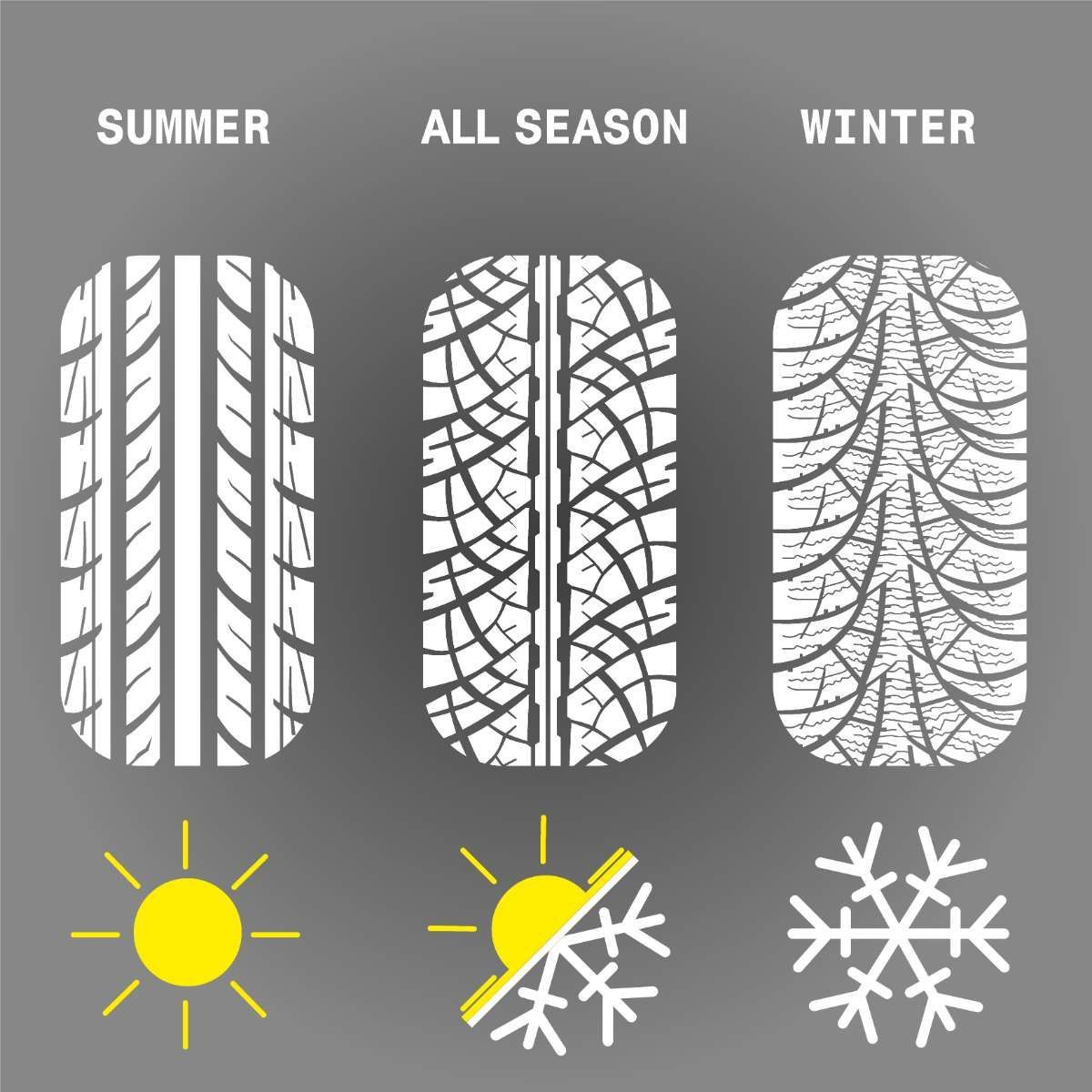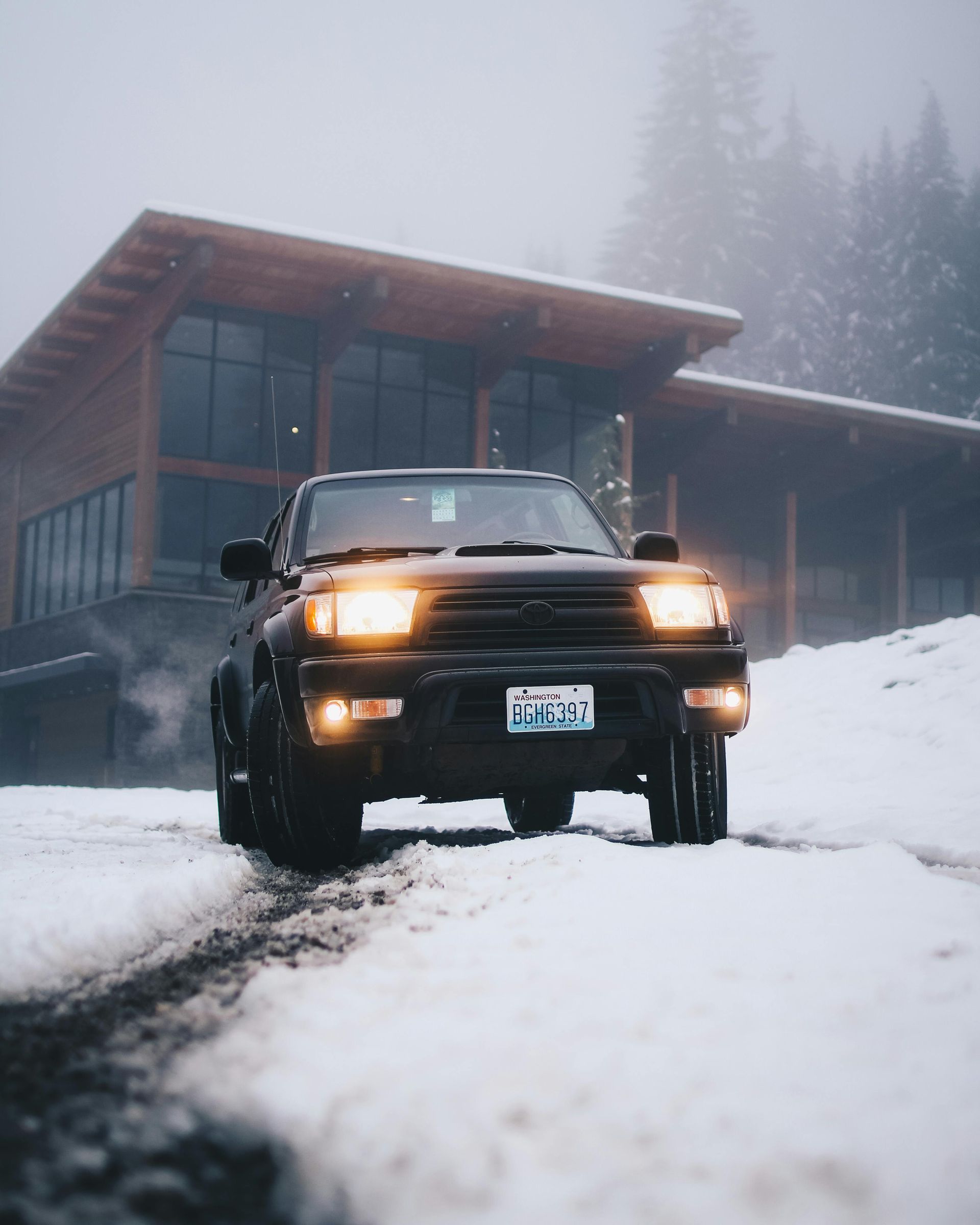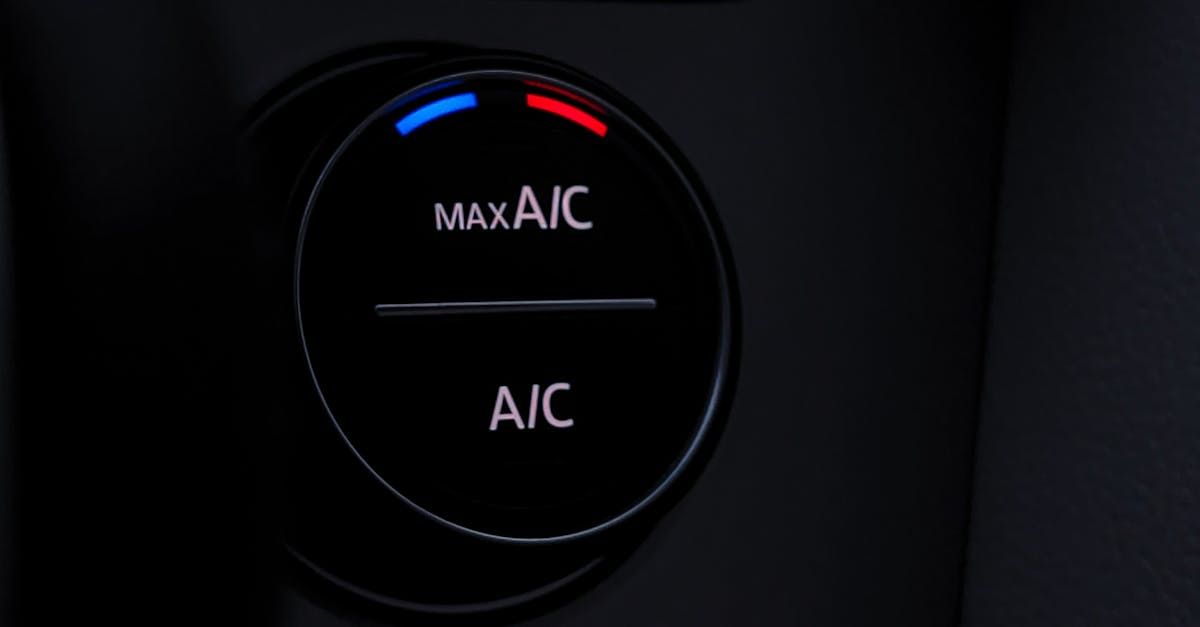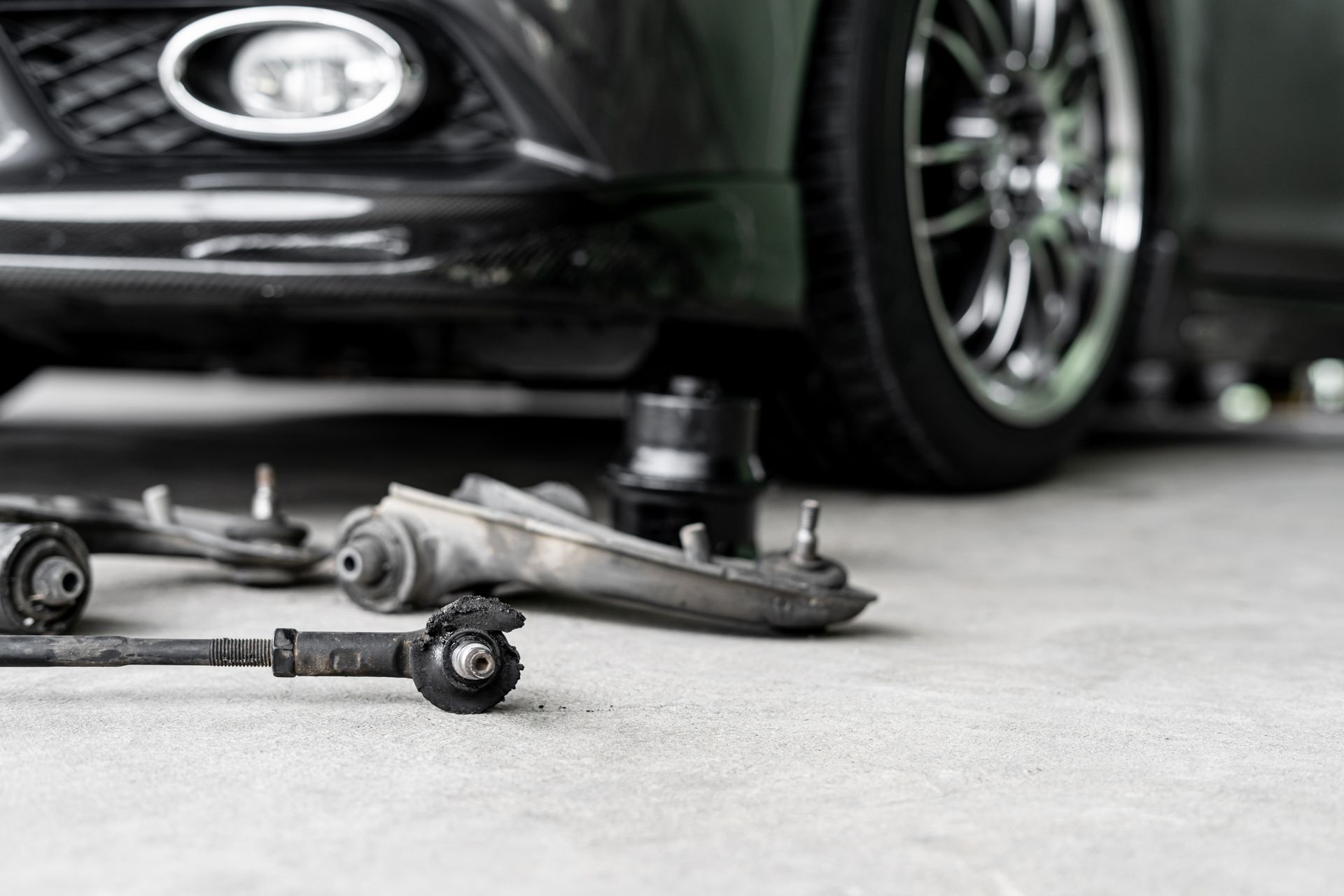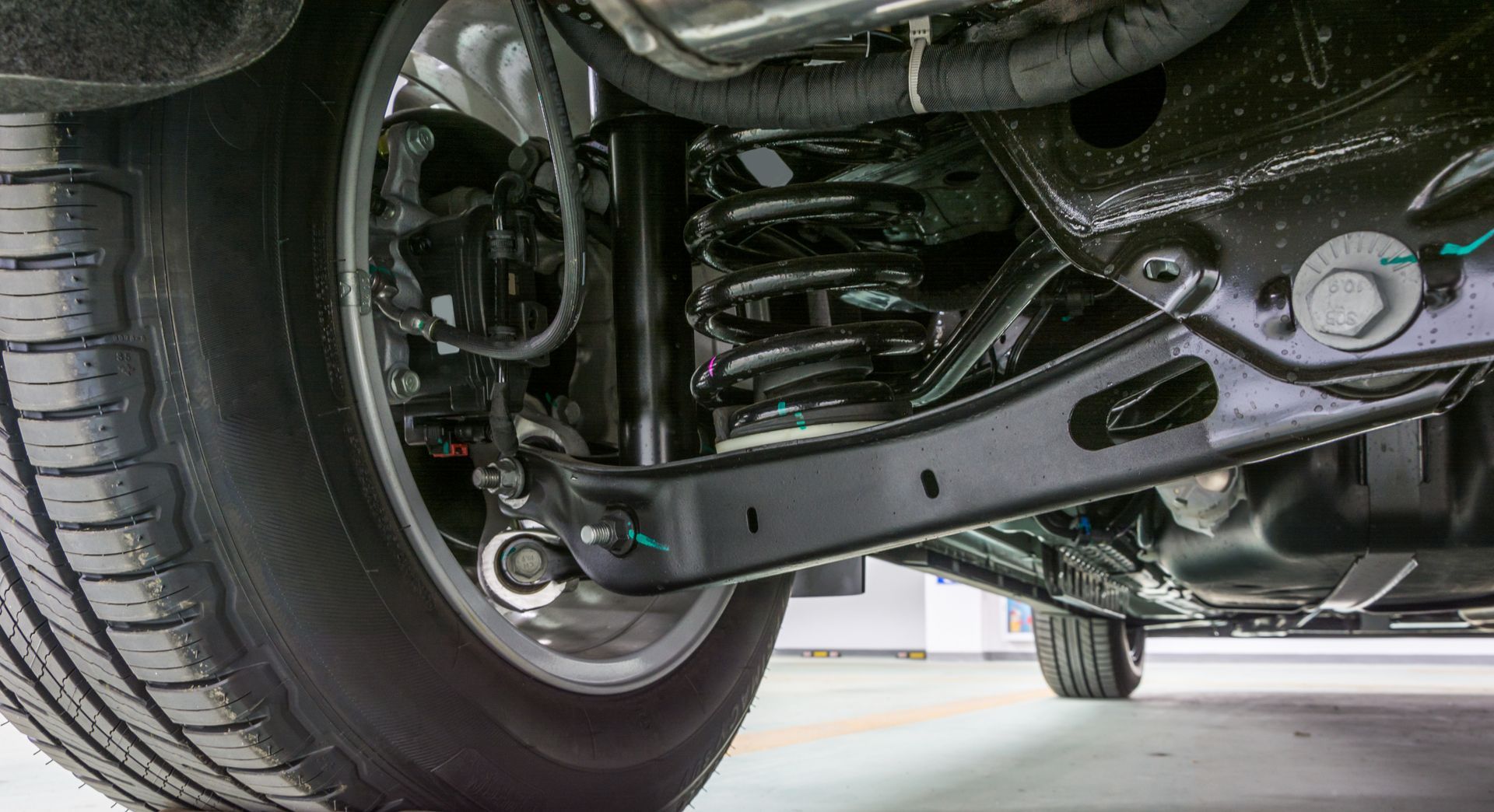Are Snow Tires Good In Rain?
We're here to answer a question we get all the time, "Are snow tires good in rain?"
When winter approaches, many drivers switch to snow tires for safer driving on icy and snowy roads. However, a common question arises once the snow melts or you leave your snow tires on through the winter season:
Are snow tires good in rain? This blog covers everything you need to know about the performance of snow tires in wet conditions, letting you make your own informed decision.

What Makes Snow Tires Unique?
Snow tires or winter tires are engineered for peak performance in cold weather conditions. The features which allow this to be so are as follows:
Soft Rubber Compounds: Engineered to remain flexible even in well below freezing temperatures, improving traction.
Deeper Tread Patterns: Expel snow and slush from the tire's surface allowing for better traction.
Specialized Grooves: Provides enhanced traction on both ice and snow.
The Science Behind Snow Tires in Rain
Rain creates unique challenges for any kind of tire. And snow tires have deeper grooves or valleys, which can help channel water away and avoid hydroplaning. However, their softer rubber wears faster in mild conditions.
While snow tires offer much better grip than summer tires in rain, in most cases they don’t actually outperform dedicated all-season tires. If you’re weighing the pros and cons, call one of our well versed professionals at Auto Medics for advice tailored to your situation.
Pros of Using Snow Tires in Rain
- Traction: The softer rubber compound aggressively grips wet surfaces better than standard, more stiff, summer tires.
- Versatility: Ideal for locations experiencing random weather patterns, such as snow in the morning and rain in the evening and vis versa.
- Treads: Effective in channeling water, reducing the risk of hydroplaning.
Cons of Using Snow Tires in Rain
- Wear: Softer rubber compounds can wear quickly in warmer, more wet conditions.
- Efficiency: It’s been shown that snow tires increase fuel consumption because of higher rolling resistance on the pavement.
- Longevity: Regular use on wet roads without snow can reduce the tires lifespan. What does this really mean? It costs you more money because you’ll need to replace them more often.
For more detailed reviews about tire performance, check out our customer reviews.
When to Use Snow Tires in Rain
Snow tires excel in specific conditions.
In cold rainy weather below 45°F, they maintain flexibility and grip better, and in mixed conditions where rain follows a snowstorm, they effectively handle slush and wet roads very well.
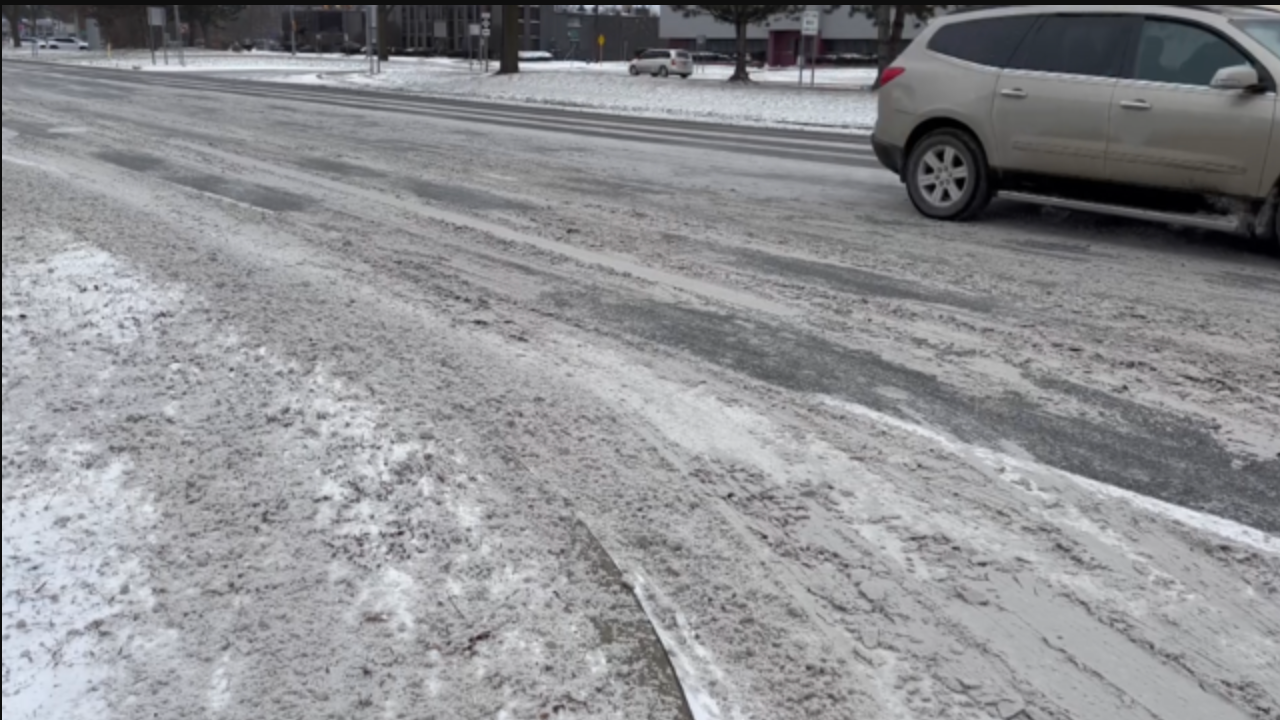
Alternatives to Snow Tires
for Rainy Conditions
While snow tires perform decently in rain, other tire options might be more suitable especially if you’re trying to be cost effective:
- All-Season Tires: Designed to handle a variety of conditions, including rain, snow, ice, etc.
- Rain-Specific Tires: Built with tread patterns and rubber compounds optimized for wet traction.
- Winter and Summer Tire Combo: Regularly swap between tire types biannually while storing the others, preserving tread.
How to Maximize Snow Tire
Performance in Rain
To get the most out of your snow tires during rainy conditions, follow these tips:
Monitor Tire Pressure: Maintain proper pressure for the best amount of traction.
Check Tread Depth: Use a penny to check tread depth. If you can see Lincoln's head, you might want to start tire shopping.
Rotate Tires Regularly: Prevents uneven wear on each tire and extends your tires life.
So, is it true?, “Are Snow Tires Good in Rain?”
In short, Yes, snow tires can handle rainy conditions better than summer tires, especially in colder weather when ice is most likely a factor. However, they probably won’t outperform all-season or rain-specific tires in more, let's say, neutral climates.
Understanding your local weather patterns and calling your local tire experts is the key to making the right informed choice.
For tailored guidance and the best tire recommendations, callAuto Medics today. No purchase required.
FAQs
Can snow tires be used in normal weather?
Using snow tires in normal weather is fine for short periods of time but it is not ideal due to faster tread wear, reduced handling, increased road noise, and compromised safety.
Is it illegal to drive with snow tires in the summer?
Yes, if they’re not studded, but it’s costly to you in the long run. Their soft rubber wears quickly in warm weather.
Whats the lifespan of snow tires?
Roughly 3-4 seasons, depdning on road conditions and drive time.
How do I know if my snow tires are still good?
Check the tread depth using a penny. If you can see the top of Lincoln's head, it's time to do some tire shopping.
Do snow tires affect gas mileage?
Yes, winter tires have deeper treads for better snow and ice traction which creates more road friction and increases fuel consumption.




